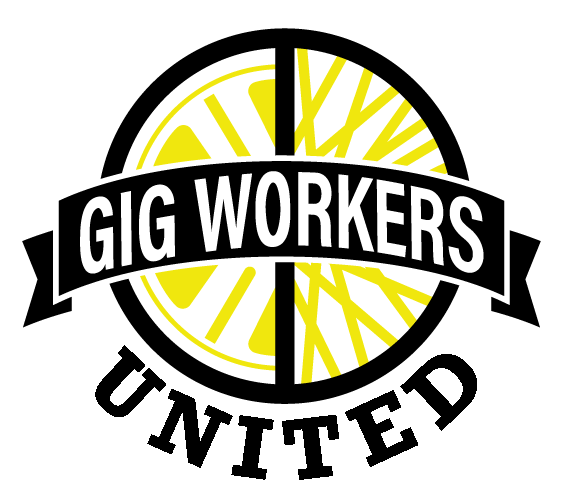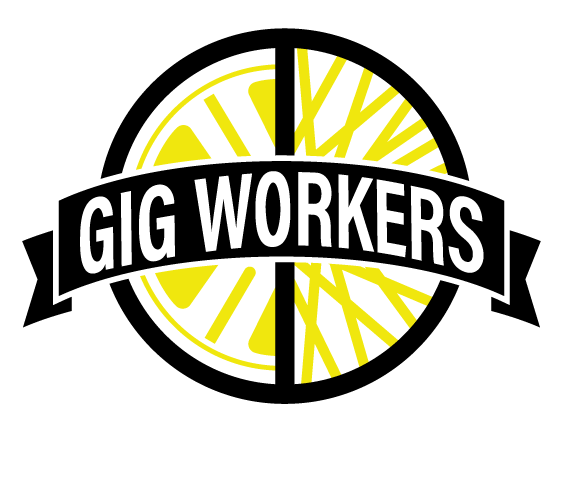Overview of the Gig Economy
In the wake of the 2008 financial crisis, the Gig Economy came in with a bang promising a new, flexible, and tech-savvy way to work. Gig companies maximize expansion and market control, creating wealth at the top, while relying on the intentional misclassification of workers and dodging their responsibilities to those workers - the people who make the industry run. At the same time, restaurant operators are forced to pay exorbitant fees, or be excluded from an essential income source.
Customers are separated from the reality of work that goes into running this industry; the many hands who process, cook, package, and deliver their hot meals or the shoppers who select the perfect items for them, package and deliver them to their homes. This is all by design. These companies want a fractured, disconnected workforce to get away with the labour violations that are central to their business model.
Platform delivery may be here to stay; the convenience and access it provides to many is undeniable. But this can’t come at the cost of a living wage and labour rights for the people who make those deliveries possible.

What is being a Gig Worker like?
Our work is fast paced, rushed and sometimes overwhelming. It feels like being swept up in a whirlwind of restaurants’ time constraints, congested traffic navigation, and unpaid wait times. The unreliable tech, combined with some companies’ non-transparent rating system, means that we gain and lose the ability to work without warning. We set goals of how much money we need to make in a shift. Receiving order after order of low paid on long distance drop offs, in all kinds of weather, even earning minimum wage can feel like an impossible dream sometimes.
Our health and safety isn’t a priority for app employers who encourage us to take risks to generate profits. If the orders are coming in we’ll stay out well past the point of exhaustion because there’s no guarantee it’ll be good tomorrow.
Our boss is an algorithm who successfully prioritizes paying us as little as possible. Over time we have seen our earnings drop instead of increasing relative to our experience. Our costs have remained the same as we have to do constant maintenance at our own expense, often unable to earn money until we can pay to repair.
Working outside can be nice when the weather is good, but the lucrative times to work are always during weather conditions so bad that nobody else wants to be on the road.
Being a gig worker means dancing on the edge of financial instability, physical injury, and stress without any possibility of upward mobility. You can be deactivated at any moment without explanation, with no chance to tell your side of the story. There is no room to climb the corporate ladder towards a better job through experience. You are permanently stuck at the bottom in the gig economy.
But it doesn’t have to be this way! Gig workers around the world are standing up and organizing - we are uniting as workers, to create a better future for ourselves.
What are we working to achieve?
We are a union of app based delivery workers across the Greater Toronto Area. As Gig Workers United we are organizing for the rights that we deserve.
Livable Wages
We demand a guaranteed fair and livable wage for our work.
Health and Safety
As workers we deserve access to paid sick days, health benefits and safe work conditions.
Workers' Rights
We demand an end to the intentional misclassification of gig workers that prevents us from accessing any of the labour protections that we deserve like; paid breaks, the right to unionize, and recourse for wrongful dismissal and wage theft.
Transparency and Accountability from Apps
Employers must be transparent in how they determine the conditions of our work and how we are paid— and be accountable for these decisions.
What we’ve already achieved
As Foodsters United, we won the right to unionize as dependent contractors— a precedent-setting victory that has challenged the logic of the gig economy.
- Foodora couriers win right to join a union in an ‘historic precedent’ for gig economy workers (The Star)
- Foodora couriers can form union, Ontario Labour Board rules (CP/Bloomberg)
We built a remarkably successful, community-driven unionization drive, across Toronto and Mississauga, with 89% of workers voting “yes” to unionize their workplace.
- Unsealed tally shows Foodora couriers voted in favour of unionization, CUPW says (CP/The Star)
- The anatomy of a gig-worker union drive (Rabble)
After Foodora declared bankruptcy in Canada and left couriers unemployed in the middle of the Covid-19 pandemic, our organizing and campaigning won a historic $3.46-million settlement for all Canadian couriers displaced by the company’s decision.
- Former Foodora workers reach $3.46M settlement with app's parent company (CBC)
- Foodora couriers win $3.46-million settlement following food-delivery giant’s abrupt Canadian closure (The Star)
To learn more about our work as Foodsters United, check out Sara Mojtehedzadeh’s podcast with Atkinson Foundation, “Hustled.”
Challenges of Precarious Work
What does “Flexibility” Really Mean?
The primary language of the gig economy is ‘flexible work.’ Gig workers quickly learn what this term really means: work without any guarantees. Earning a livable wage is dependent on the worker’s ability to be flexible in accommodating the needs of the industry, not the other way around. True, we can choose the days we work, but we do not choose when people order food. The “flexibility” we are sold is closer to an illusion.
App-based employers saturate every area of our city with couriers, ensuring earnings are high for the company and wages are low for the workers, while guaranteeing they can be open for business during extreme weather conditions. They take on none of the financial burden or dangers yet reap substantial profits. That’s a steep price to pay for so-called “flexibility”.
Flexibility should not come at the expense of safety, livable wages, and job stability. We believe that flexibility and fairness can go together. It’s not the either/or that app-based employers use to justify abandoning their responsibilities to the workers.
Health and Safety
Gig workers have no access to benefits like unemployment insurance, health insurance, dental, vision care, a retirement pension, and disability insurance. Without an employer-supplemented insurance plan, low-income gig workers do not have the coverage needed for medical treatments because they can’t afford private plans.
Workers who deliver on bike and ebike are at risk for serious injuries that can take us off the road for months at a time; without any financial or medical support to help us through rehabilitation. Workers who deliver in cars experience repetitive use injuries from driving for long periods of time. We are forced to make choices to work at the expense of our health, knowing we will pay the costs in the future.
Transparency and Recourse
Our app-based employers assure us that we have the ability to control the conditions of our work. We know this is not true. It’s common to log into the app to begin work only to see that we must agree to a contractual change of our status before we are permitted to work. Whether contacting support to contest a reduced wage after completion of work, or to request support in a dangerous situation, contacting courier support is often a waste of time with no satisfying resolution.
Labour Protections
The misclassification of gig workers as independent contractors results in zero labour protections for workers. When we receive reprimands or are deactivated from the platform we have no ability to to explain and keep our jobs. When we are accused of violations of our contract we are not permitted to know the details of what we did wrong and are often deactivated from the app without any notice. When we are put in unsafe situations, we don’t have recourse to refuse unsafe work. When we are injured or sick, we don’t have sick days or access to E.I. We lack access to any of the labour rights a traditional worker would have to pursue claims of wage theft, wrongful dismissal, and abuse or discrimination.
